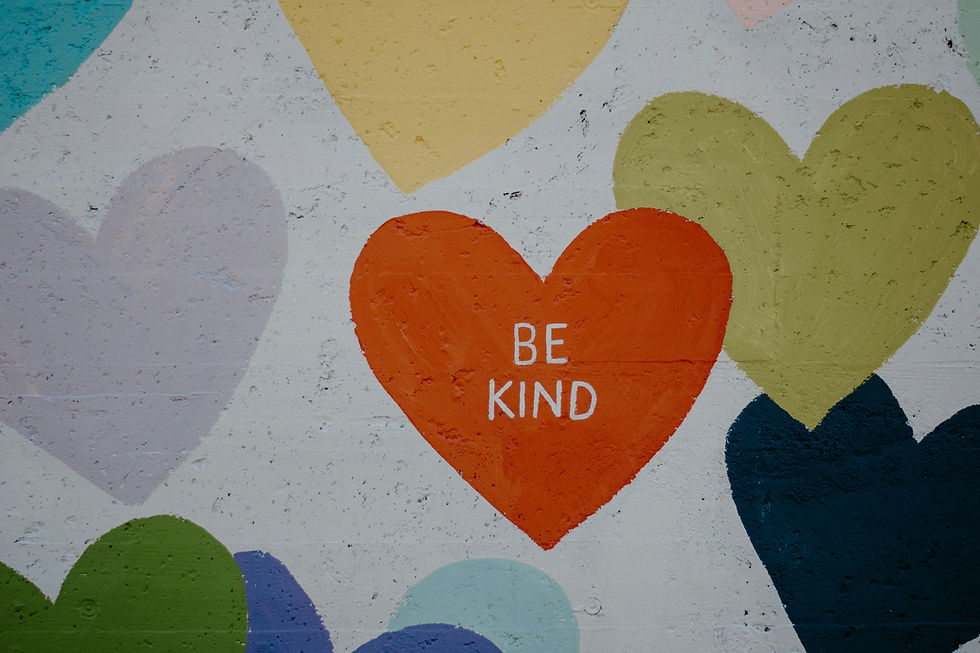How we can become more empathetic in our daily lives
- Charlie Winton

- Feb 26, 2024
- 2 min read
I often talk about the importance of self awareness and how understanding what we feel and why we feel it can help us navigate both the good and challenging times in our lives. Taking this a step further is then understand empathy and in particular how to be empathetic to others.
It is much easier said than done because we have a stigma around opening up and talking regularly about mental health and in particular how we are feeling to others. That makes it more difficult to understand how others may be feeling and how to react or behave around them.
An example of this might be when you accidentally bump into someone on public transport and they shout at you. You see that on face value and more often than not react angrily looking to blame as your first port of call. This is where empathy comes in. That person may well be reacting that way as they are rushing to hospital to see a loved one and the altercation has shocked them. It may be that they are late for the school pick up and feeling anxious. We don’t know. That is the essence of empathy, that if we take a moment before reacting to something and try and appreciate what someone might be going through we can create healthier behaviours and conversations.
Another example from a workplace may be a manger projecting stress onto their team. The manager is on a warning from the senior management that performances are not where they need to be and they are under pressure. They then see a member of their team late for work and address this negatively with them. What the manager does not know is the team member is caring for an elderly relative who had a fall and this caused them to be late which is also causing an increase in their stress. The interaction then causes an argument where neither person empathises with the other and only judges the situation on face value or from their perspective. The lack of empathy in this situation is only going to cause problems for both their working relationship and mental health.
So how do we encourage more empathy in our daily lives? It’s not a simple answer but starts with some simple steps.
Become more self-aware on your moods and how you are behaving with others (in particular what could be causing you to feel stressed or frustrated).
Don’t react to situations without taking the time to think and try to understand where the other person is coming from and what they could be going through.
Share your experiences with others so they know what is going on in your life and this way they can empathise with you more.
Lacking empathy can cause problematic situations and the trickle effect of these situations can negatively impact those around you and the other people involved. So it is important that we try and learn more about this topic and apply it to our lives.




Comments